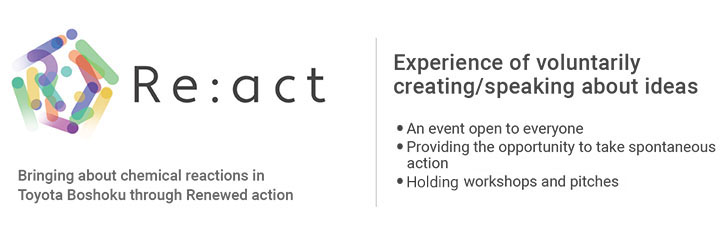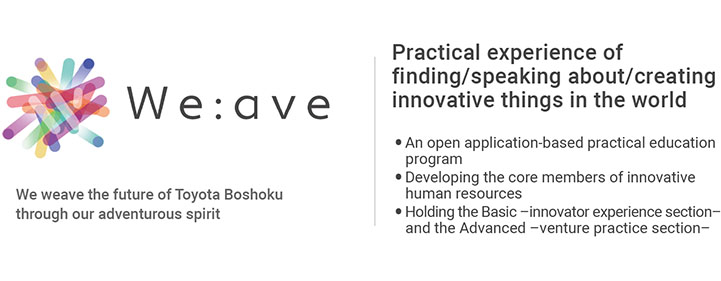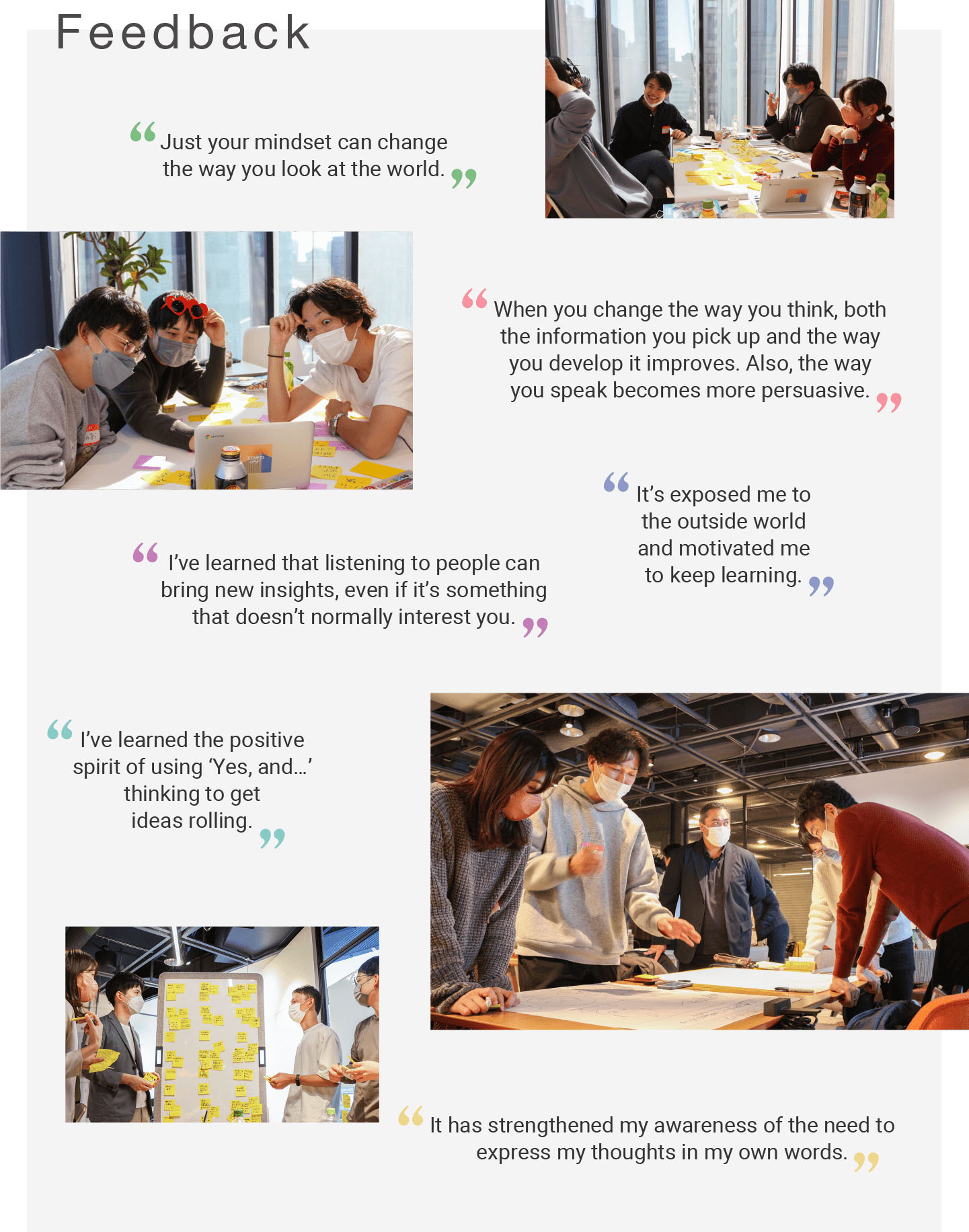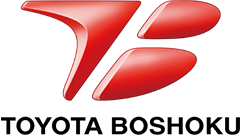Paving the way to the future through innovation
Enhancing innovative ability for the next 100 years
One hundred years from now, what will our core products be, and what value will we provide to society? As an Interior Space Creator, will we be consistently evolving products that are safer, more functional, and better designed?
In addition to the above, we want to contribute more and more to the world by creating lots of products in areas that differ from mobility. Making contributions that will transform society in ways that those of us living in December 2023 cannot even imagine.
Founded in 1918, Toyota Boshoku has survived the past century or so by drawing on its own wisdom to create new things. In order to continue to exist 100 years from now, we must continue to be needed by society. For this, innovation will be even more essential than before, and innovation in any era is driven by people’s ideas and passion.
Now is the time to enhance innovative ability to take on the challenges of the next 100 years. With this in mind, in August 2022 we launched two activities under the name “Innovative Ability Enhancement Programs” to nurture leaders in expanding our business fields and creating new businesses.
These are “Re:act,” which provides opportunities for spontaneous action, and “We:ave,” practical education for innovation.
Bringing about chemical reactions in Toyota Boshoku through Re:act

Re:act is an experiential program that provides the opportunity for spontaneous action. Any company member can participate and voluntarily discuss and enjoy ideas, through workshops and idea contests.
At the first event held in August 2022, a memorable occasion, the topic was “outer space.” Since innovation is our focus, we thought an unexpected topic would be appropriate. That said, the market for businesses connected with outer space is expected to expand, and this is not unrelated to our company, as we are involved in the business of “space.” The seeds of ideas to solve space-related problems could be generated by leveraging Toyota Boshoku’s strengths. Hundreds of company members who wanted to “take a step forward on their own” participated in online lectures given by outside instructors and in workshops organized by the sponsoring divisions, and were inspired in various ways.
In December 2022, an idea contest (Re:act Pitch) was also held as an opportunity for company members to test their skills by presenting their ideas to outside experts. Six teams were selected from a total of 49 applications, and they then presented their ideas. The event was also streamed online, with more than 400 viewers and over 100 comments in the chat. It was a forum where the individuals who presented their ideas, as well as the viewers, were able to experience the joy of creating and discussing ideas.
The Re:act program aims to create an ideal situation in which company members who participate in the program initiate new activities, and chemical reactions occur everywhere in the company. We will continue to implement topics that inspire participation.

Weaving the future of Toyota Boshoku through “We:ave”

“We:ave” is a practical education program for innovation, in which participating company members are selected from internal applications. This training program allows participants to gain practical experience in finding examples of innovation in the world, talking about them in their own words, thinking about the next innovation, and presenting their ideas to the world. It also enables them to experience the thrill of refining business ideas through external exchanges. Selected company members dedicate themselves to this training as “adventurers” for the duration of the program.
There were 11 members in the first cohort. Although it was initially a shock for them to dive into the world of entrepreneurs and innovators, their various experiences led them to discover their own aspirations. Synthesizing what they had learned through the training program as business ideas, they then presented these ideas. Two of the best ideas from the program have progressed to the next step with a view to commercialization, and the remaining members have returned to their workplaces to put what they learned into practice.
There were seven members in the second cohort. We are very much looking forward to seeing what ideas will emerge and how they will grow.



 Media site to convey the Toyota Boshoku group vision for the future and initiatives
Media site to convey the Toyota Boshoku group vision for the future and initiatives



